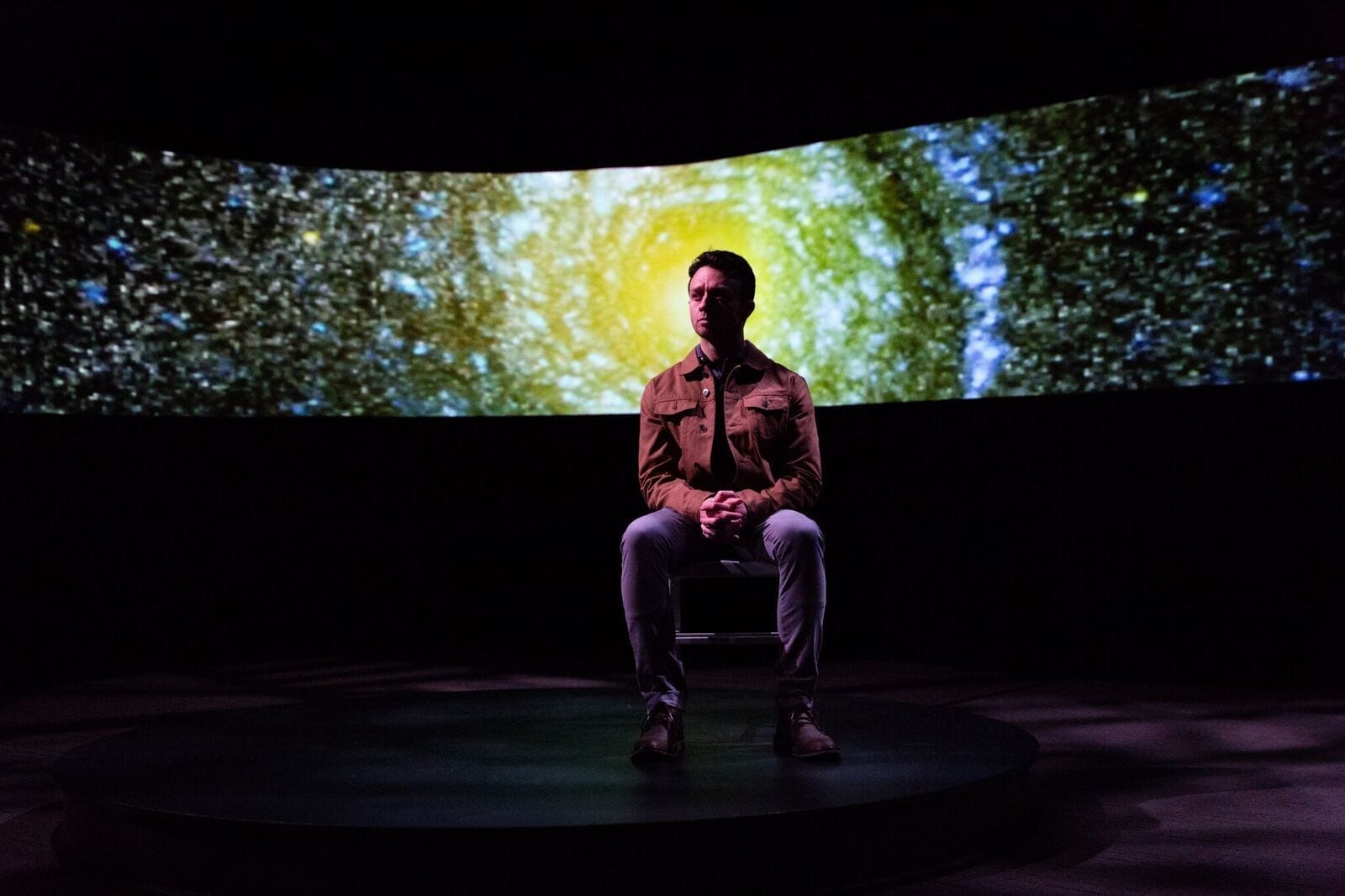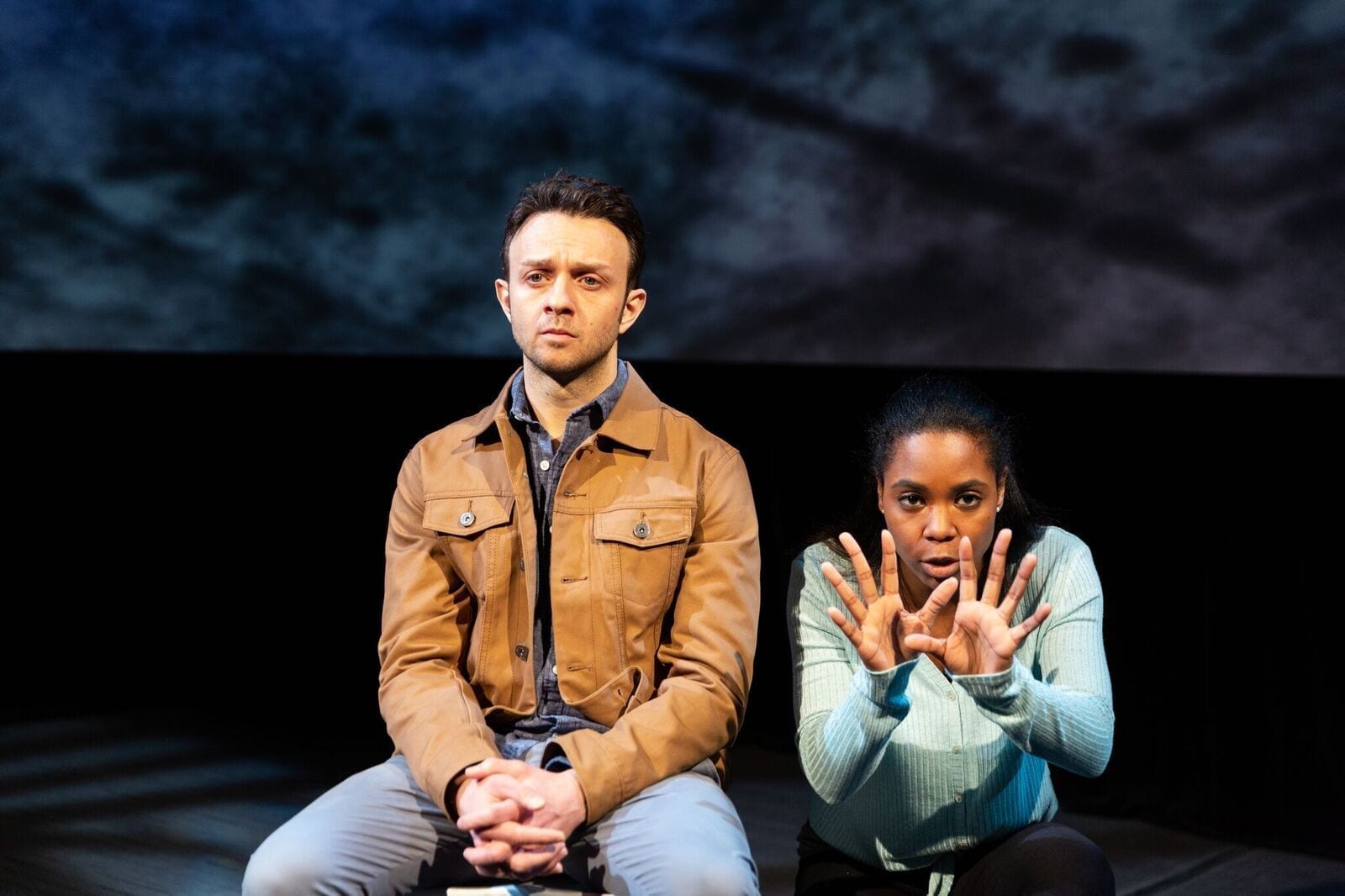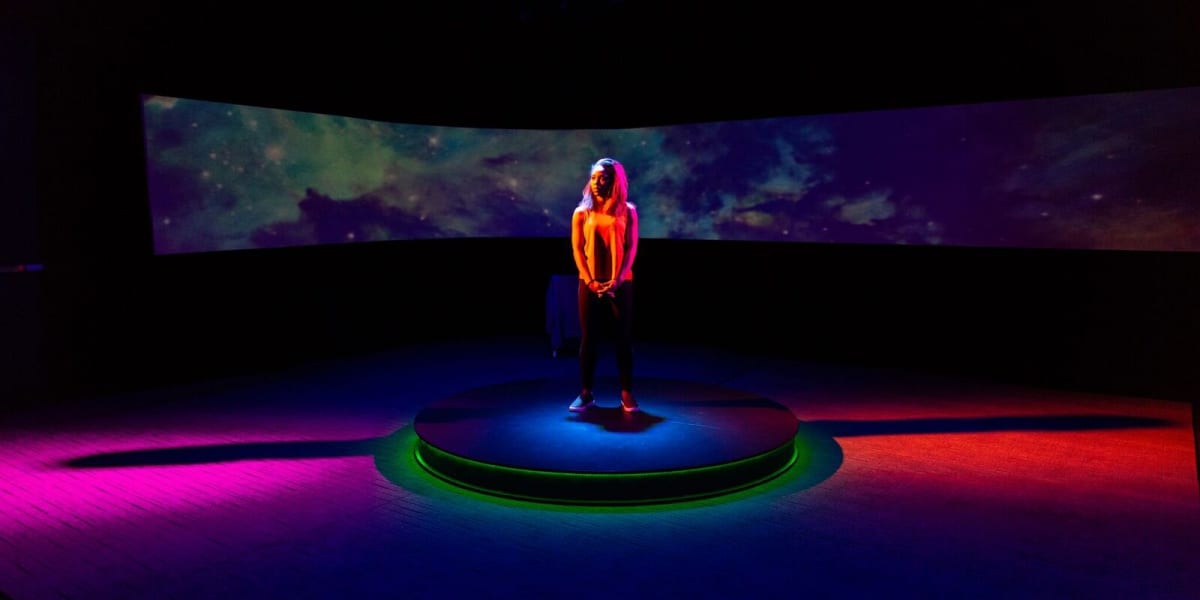A young white man enters a dark planetarium, wielding a gun, and opens fire. One of his bullets rips young black girl from her mother beneath the cold indifferent gaze of the unending cosmos. At the onset of this heartfelt and thought provoking new work from Gabriel Jason Dean and Charly Evon Simpson, Bradley (played by James Kautz), wakes from a fever dream to discover that his younger brother has just shot up the Hayden Planetarium. Shortly after, we meet Greta (Naomi Lorrain), the mother of one of the victims and a survivor of the shooting.
The two actors impress. James Kautz embodies a geeky affability that slips towards an obsessive neurosis as he searches, with growing desperation, for answers and absolution. The news traps him in a cycle of grief and guilt, and he concocts or uncovers a number of explanations for his brother’s act: the father’s toxic masculinity, the brother’s depression, his own unseeing indifference towards his brother. No answer sticks or satisfies.
As part of his search, Bradley writes compulsively to Greta, who feels grief deeper than guilt and cares less about motivations than she does about her new childless reality. Little (the shooter’s diminutive moniker), a white man, robbed her of something irreplaceable. Why should she care if the shooter, as a white man, didn’t feel “seen?” As she points out, in one of the play’s more soaring moments, “I’ve spent much of my life not being seen/I’ve spent much of my life being ignored/By loved ones, by strangers/And I did not pick up a gun.”
Naomi Lorrain offers a well realized, complex, and multifaceted exploration of grief. There’s real anger there—which becomes a plot point, after she faces online criticism for a CNN interview where she airs her grievances. The right to anger and the right to grieve unmolested remains reserved for white survivors. Laudably, Lorrain (under Kate Moore Heany’s subtle directorial hand), tempers the anger with moments of breathtaking vulnerability and tenderness. A gripping, visceral energy unifies these two performances and fills the small theater to bursting.
And it’s a good thing to, as this, more than most plays, lives and dies by the actors.
The story unfolds through alternating monologues during which our characters spend nearly as much time thinking, musing, reminiscing, daydreaming, writing messages that will never be sent and sending messages which will receive no response as they do recounting actual scenes.

The direction and design aim towards an unobtrusive, yet buttressing, subtlety. More often than not, they succeed. Andrew Diaz’s set features a circular platform, raised about a foot off the ground, the entirety of it black (save for a single white chair), suggesting a planetarium. The projections (Katherine Freer) alternate between planetarium-show images of the cosmos and abstracted shapes and colors to suggest setting (one particularly effective example: a recurring gray blur reminiscent of a tunnel viewed through a subway window). Angela Harner’s costumes reflect the characters’ mental states throughout the show, with Greta, at her nadir, donning loose fitting athleisure wear and letting her hair out of her tight bun.
None of the above needs to be flashy, because the richness of the characters’ psychology shines so bright on its own. The thoughts these well-realized humans unravel force us to come to terms with an uncomfortable realization: violence is merely a symptom of underlying disease. To move forward, we have to contend with something far deeper and pathological in the white male psyche, something rapacious as a black hole, that pulls everything in and, in doing so, destroys.

